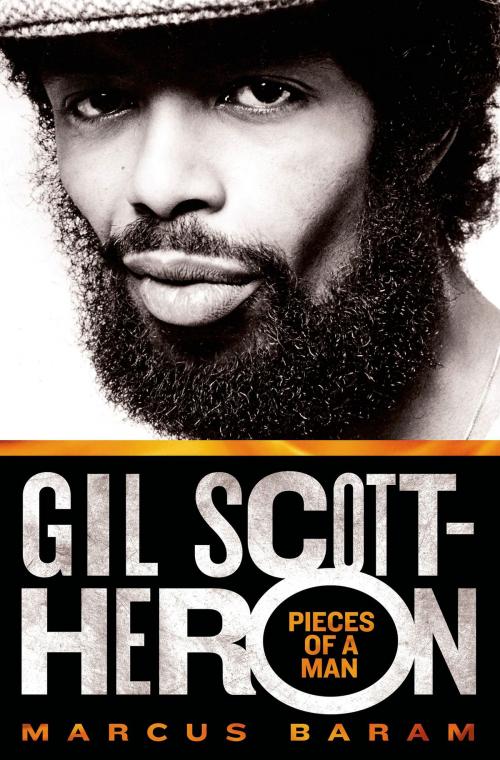Gil Scott-Heron: Pieces of a Man
Nonfiction, Entertainment, Music, Music Styles, Jazz & Blues, Soul, Biography & Memoir, Composers & Musicians| Author: | Marcus Baram | ISBN: | 9781250012791 |
| Publisher: | St. Martin's Press | Publication: | November 11, 2014 |
| Imprint: | St. Martin's Press | Language: | English |
| Author: | Marcus Baram |
| ISBN: | 9781250012791 |
| Publisher: | St. Martin's Press |
| Publication: | November 11, 2014 |
| Imprint: | St. Martin's Press |
| Language: | English |
Best known for his 1970 polemic "The Revolution Will Not Be Televised," Gil Scott-Heron was a musical icon who defied characterization. He tantalized audiences with his charismatic stage presence, and his biting, observant lyrics in such singles as "The Bottle" and "Johannesburg" provide a time capsule for a decade marked by turbulence, uncertainty, and racism. While he was exalted by his devoted fans as the "black Bob Dylan" (a term he hated) and widely sampled by the likes of Kanye West, Prince, Common, and Elvis Costello, he never really achieved mainstream success. Yet he maintained a cult following throughout his life, even as he grappled with the personal demons that fueled so many of his lyrics. Scott-Heron performed and occasionally recorded well into his later years, until eventually succumbing to his life-long struggle with addiction. He passed away in 2011, the end to what had become a hermit-like existence.
In this biography, Marcus Baram--an acquaintance of Gil Scott-Heron's--will trace the volatile journey of a troubled musical genius. Baram will chart Scott-Heron's musical odyssey, from Chicago to Tennessee to New York: a drug addict's twisted path to redemption and enduring fame. In Gil Scott-Heron: Pieces of a Man, Marcus Baram puts the complicated icon into full focus.
Best known for his 1970 polemic "The Revolution Will Not Be Televised," Gil Scott-Heron was a musical icon who defied characterization. He tantalized audiences with his charismatic stage presence, and his biting, observant lyrics in such singles as "The Bottle" and "Johannesburg" provide a time capsule for a decade marked by turbulence, uncertainty, and racism. While he was exalted by his devoted fans as the "black Bob Dylan" (a term he hated) and widely sampled by the likes of Kanye West, Prince, Common, and Elvis Costello, he never really achieved mainstream success. Yet he maintained a cult following throughout his life, even as he grappled with the personal demons that fueled so many of his lyrics. Scott-Heron performed and occasionally recorded well into his later years, until eventually succumbing to his life-long struggle with addiction. He passed away in 2011, the end to what had become a hermit-like existence.
In this biography, Marcus Baram--an acquaintance of Gil Scott-Heron's--will trace the volatile journey of a troubled musical genius. Baram will chart Scott-Heron's musical odyssey, from Chicago to Tennessee to New York: a drug addict's twisted path to redemption and enduring fame. In Gil Scott-Heron: Pieces of a Man, Marcus Baram puts the complicated icon into full focus.















